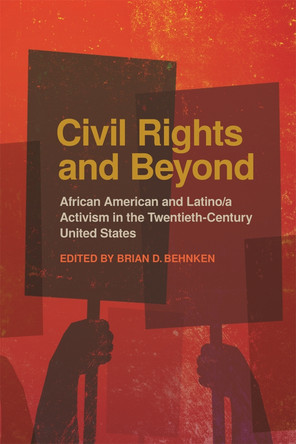Description
In the wake of the New Deal, U.S. politics has been popularly imagined as an ongoing conflict between small-government conservatives and big-government liberals. In practice, narratives of left versus right or government versus the people do not begin to capture the dynamic ways Americans pursue civic goals while protecting individual freedoms. Brian Balogh proposes a new view of U.S. politics that illuminates how public and private actors collaborate to achieve collective goals. This "associational synthesis" treats the relationship between state and civil society as fluid and challenges interpretations that map the trajectory of American politics solely along ideological lines. Rather, both liberals and conservatives have extended the authority of the state but have done so most successfully when state action is mediated through nongovernmental institutions, such as universities, corporations, interest groups, and other voluntary organizations.
The Associational State provides a fresh perspective on the crucial role that the private sector, trade associations, and professional organizations have played in implementing public policies from the late nineteenth through the twenty-first century. Balogh examines key historical periods through the lens of political development, paying particular attention to the ways government, social movements, and intermediary institutions have organized support and resources to achieve public ends. Exposing the gap between the ideological rhetoric that both parties deploy today and their far less ideologically driven behavior over the past century and a half, The Associational State offers one solution to the partisan gridlock that currently grips the nation.
The Associational State argues that the relationship between state and civil society is fluid, and that the trajectory of American politics is not driven by ideological difference but by the ability to achieve public ends through partnerships forged between the state and voluntary organizations.
About the Author
Brian Balogh is Compton Professor at the Miller Center and Professor of History at the University of Virginia. He is author of A Government Out of Sight: The Mystery of National Authority in Nineteenth-Century America and cohosts the public radio show Backstory with the American History Guys.
Reviews
"Brian Balogh's stimulating collection of essays on the development of the modern American state . . . make[s] a significant contribution to a growing literature that seeks to understand the substantial and complex power of the modern American state rather than to deny it." * American Historical Review *
"A compelling and novel portrait of American political development. Balogh contends that a different and powerful reading of American political history can be developed by focusing on the organization of relationships between the state and society." * Elizabeth Clemens, author of The People's Lobby: Organizational Innovation and the Rise of Interest Group Politics in the United States *
"A distinctive analysis of the growth of American government in the twentieth century, building its many insights on a commanding synthesis of American political development and the new political history." * James Sparrow, author of Warfare State: World War II Americans and the Age of Big Government *
Book Information
ISBN 9780812224221
Author Brian Balogh
Format Paperback
Page Count 288
Imprint University of Pennsylvania Press
Publisher University of Pennsylvania Press






![Taking Stock: American Government in the Twentieth Century by Morton Keller 9780521655453 [USED COPY] Taking Stock: American Government in the Twentieth Century by Morton Keller 9780521655453 [USED COPY]](https://cdn11.bigcommerce.com/s-zkx5lhzlf8/images/stencil/444x444/products/5089874/5089052/9780521655453__91497.1723077859.jpg?c=1)

